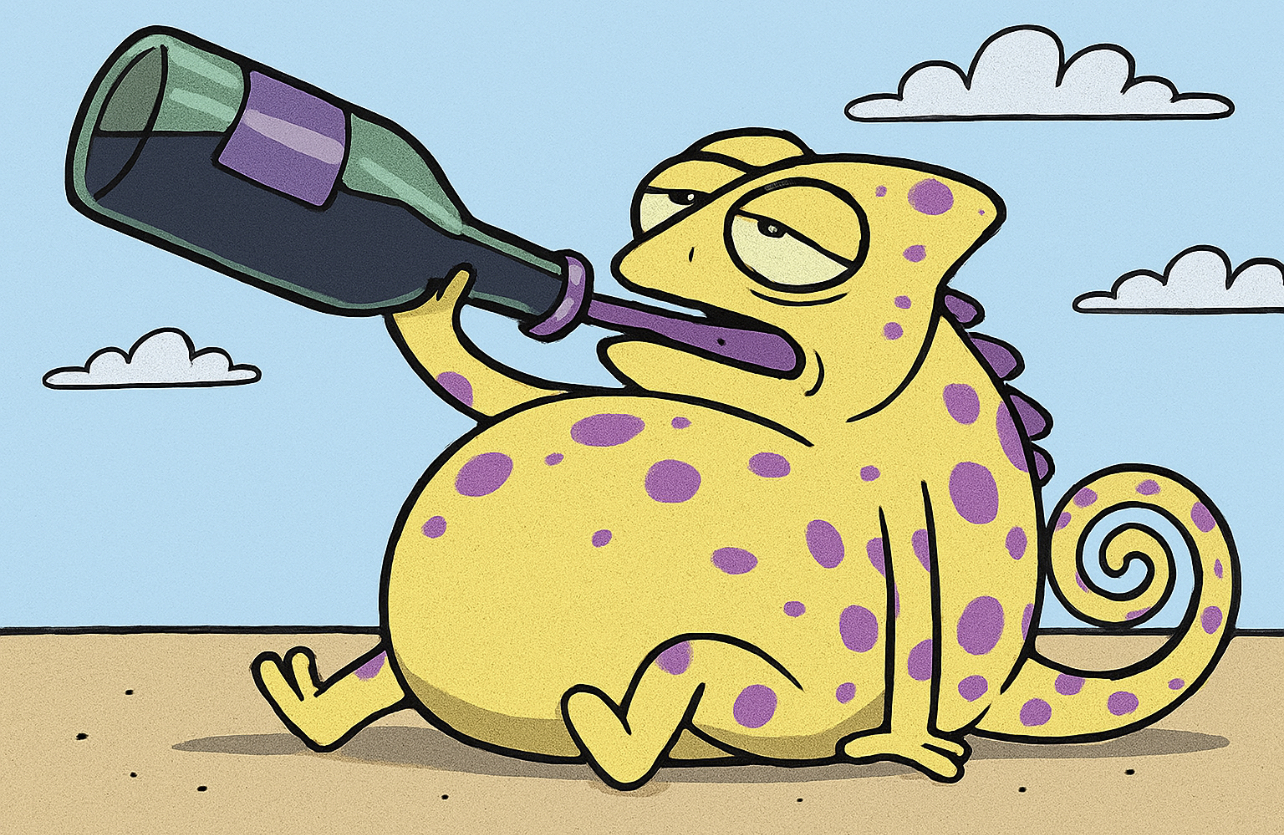Myth 48: "Chameleons Do Not Overhydrate"

The Misconception
Many keepers believe that chameleons instinctively regulate their water intake and stop drinking when hydrated. This is not true. Chameleons do not possess a conscious mechanism to gauge hydration levels and stop drinking accordingly. Instead, their behavior is driven by evolutionary emergency programming.
The Emergency Protocol
When a chameleon becomes desiccated (dehydrated), it follows a deeply ingrained survival response:
I am desiccated.
I need to drink.
If I am desiccated, it likely means this dry period will last a long time.
I must drink as much as possible now to build reserves and survive.
This instinct evolved over millions of years in environments where water was scarce and unpredictable. In the wild, this strategy works. In captivity, it backfires.
Captive Conditions: A Deceptive Environment
In captivity, we often create conditions that mislead the chameleon's instincts:
Too dry: Humidity levels are often far below natural nighttime levels.
Too hot: Day and night temperatures are frequently higher than in the wild.
Too much water: Liquid water is offered freely and frequently, unlike in nature.
This combination tricks the chameleon into believing it is experiencing a prolonged dry season. It then drinks hysterically, not because it's thirsty in a balanced way, but because it fears water won't return for months.
The Danger of Overhydration
Overhydration is not just unnatural—it's physiologically dangerous. Here's why:
1. Osmotic Stress
Cells maintain a delicate balance of water and solutes.
Excess water intake causes osmotic oversaturation, leading to cell rupture.
This can damage tissues, especially sensitive ones like blood vessels and intestinal linings.
2. Enzyme Dysfunction
Enzymes require specific concentrations to function.
Overhydration dilutes these enzymes, making them ineffective or inactive.
This disrupts digestion, metabolism, and immune responses.
3. Homeostasis Breakdown
Chameleons rely on precise internal balance (homeostasis).
Excess water throws off electrolyte levels, pH balance, and organ function.
This can lead to systemic stress and organ failure.
4. Endothelial Damage
Osmotic rupture of endothelial cells (lining blood vessels and intestines) causes:• Inflammation
Digestive dysfunction
Immune bias and vulnerability
Chameleons do not know when to stop drinking
Chameleons do not know when to stop drinking. They drink based on survival instincts triggered by desiccation. In captivity, we often create conditions that falsely activate this emergency response. Offering liquid water ad libitum under dry and hot conditions leads to hysterical overdrinking, which can cause serious physiological harm.
The solution?
Mimic natural hydration cycles—especially cool, humid nights with fog—and reduce reliance on liquid water. This restores balance and prevents both dehydration and overhydration.